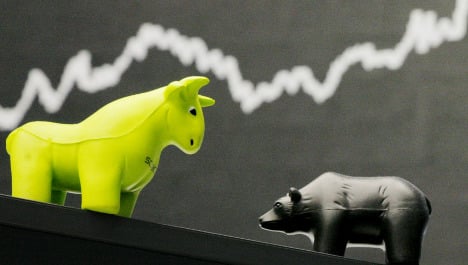The Börse Berlin, a stock exchange known in recent years mostly for light trading and continual self-reinvention, has now landed investment from massive Chicago hedge fund Citadel enabling it to tilt at some pretty lofty goals.
In five years, chief executive Artur Fischer says, Börse Berlin will be the European trading venue next to the big exchanges in London and Frankfurt. Berlin also aims to become a stiff competitor to other alternative trading systems like New York-based Chi-X, a successful multilateral trading facility and unit of Japanese securities giant Nomura. Chi-X Europe traded $300 billion worth of securities on its platform in the second quarter of this year.
“With the help of Citadel, we will be a significant exchange in Europe, in the magnitude of Chi-X and maybe bigger,” Fischer says.
The exchange business across Europe, from London to the Baltics, is in an extended period of flux. It’s marked by a maturing level of technological innovation and experience with alternative trading systems, with national economies still volatile, burdened under severe strain. Opportunities – and pitfalls – abound.
So after the dust settled on an abortive plan for Nasdaq Europe to monitor its quotes from Berlin, the Börse bought into a London-based trading platform called Equiduct two years ago. It now hopes that Equiduct will be its future meal ticket. Berlin Börse’s strategic position looked good enough for the $10 billion hedge fund Citadel to take an ownership stake a few weeks ago in the Equiduct system, leaving Berlin Börse with a diluted holding but still in place to operate it.
The investment by Citadel brings with it the big fund’s resources and credibility as a market maker and liquidity provider. Bringing such liquidity means that if investors want to buy or sell stocks using Equiduct pricing and its trading platform, they are assured of finding a trading partner. Citadel’s partnership with Berlin should reassure market participants that they will be able to trade in volume, should they so desire in the names listed on the exchange. This confidence is a critical factor in the success of any marketplace.
The firm is now, in effect, a very old start-up. What Equiduct does now is monitor the price quotes on a set of 860 listed names – blue chips like Siemens or SAP. Before recent regulatory changes in Europe, a stock like Siemens was traded in one defined venue. Now, Siemens securities are traded on many platforms: places like Chi-X, Nasdaq OMX and many other places. The price varies from venue to venue – in tiny amounts, tenths of cents, but still enough to make a difference to someone who is placing a large order.
Equiduct continually monitors the stocks it lists across all these venues and calculates an average and shows the best price from this data. If you as an investor deal with a bank in Germany or broker in the UK who is a member of the Börse Berlin, you can trade at this price. If you subscribe to the market data service, you can follow this data in real time on a big moving graph that looks like a spider.
Fischer walks out into the lobby of his Fasanenstrasse exchange and demonstrates. Though this Nicholas Grimshaw-designed building is the headquarters, most of the software factory running it resides in London, and there are no yelling traders. Fischer looks over an oversize monitor and calls up SAP from the 14th of July at 3 pm, when the markets are just opening in New York. He points to a block trade of 2,407 shares that went through at €29 – for €69,803 plus costs. Across the screen trading in another venue at the very same time, SAP went for €50 cheaper. Not much, considering, unless you do this every few minutes, or you’re uncomfortable telling your client you wasted his 50 clams because you didn’t look hard enough.
So, could Berlin wind up on Oliver Stone’s radar as the next den of hard and heavy financial dealing? The Börse has many challenges pressing against it. Traders are creatures of habit: a real liquid market like the one in Frankfurt moved on order of 97 percent of German equities last month, 92 percent of foreign stocks, adding up to 13 million transactions. That kind of traffic is sticky: traders go there because that’s where the action is, and they stay there.
But places like Berlin are giving rise to new kinds of exchanges and new decentralised, networked ways to do business. A big fund like Citadel has its own reasons for doing business with the Börse – its ownership stake in Equiduct is valuable – and many other large financial houses are launching new hubs and networks, propelled by ubiquitous broadband and a drive to exploit new niches in an unsettled environment. So, asks Fischer, why not Berlin?
“You can be anywhere,” he says, pointing to a company called International Algorithmic Trading, a young firm with 12 employees specialising in complex automated trading.
It’s based on the outskirts of Hamburg. Fischer’s regulator is in Berlin, his systems are in London, clients in London and Paris. He mentions the BATS exchange, only four years old and now the third-largest equity exchange in the world. It’s based in Kansas City.
“So why do you have to be in an expensive place?” he asks. “From Berlin, you can be anywhere in Europe in two hours. It’s truly international.”



 Please whitelist us to continue reading.
Please whitelist us to continue reading.
Member comments